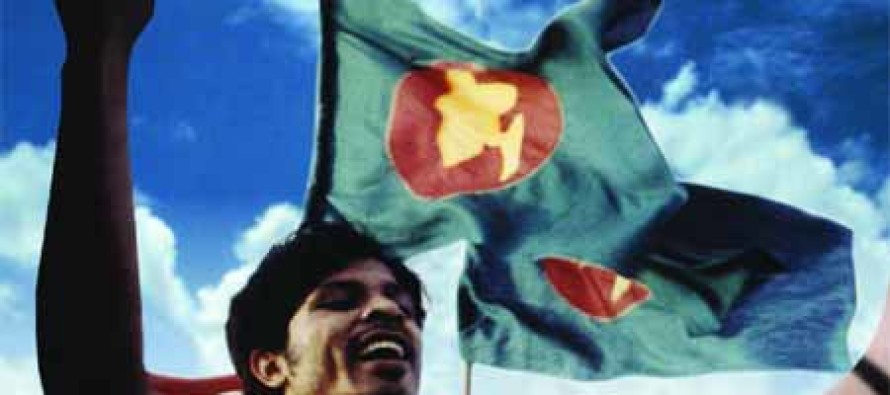No more political 'movement' please

Parliamentary elections in Bangladesh are a month and half away. Elections are scheduled to be held on 18th of December and political parties are gearing up to contest the elections as usual.
At a recent meeting with the journalists at her Gulshan office BNP chairperson Khaleda Zia indicated that her party is ready for the national elections as well as for a ‘movement’ (The Daily Star, October 28). However, she did not elaborate on the details of the so-called ‘movement’.
People may ask why another movement and what for? Who will benefit from the movement? Has not the country gone through enough movements and violent politics in recent years that caused untold sufferings to the people and serious damage to the country’s social and economic development?
I believe the nation does not need any ‘movement’ at this point in time. What the country really needs is a transformational change in the way political activities have been conducted in the past. This change should focus on a vision about how do we like to see the country, say, in twenty years’ time from now and take pragmatic approach to fulfil expectations of the people. A political leader should think about how this vision can be achieved and how the expectations of the people can be met.
If any ‘movement’ is required, it should be a different type of movement – a ‘movement’ different to the common understanding of this term by many political leaders. It is about their own political psyche. Politicians should ‘move’ (change) their attitude to politics and how they approach it, and this is the ‘movement’ sensible people in the society desire, I reckon.
The leaders of political parties such as BNP, Awami League and Jamaat-e-Islami should change the operating models of their politics if they truly want to serve the people. Professional politicians should approach politics in a professional way and should not treat it as a means of self-serving mechanism. They need to restructure the current framework of their thinking, directions, beliefs and values that shape their respective political positions and guide them to operate political activities.
Under the new and changed circumstances, a political leader or a party should be forward-thinking and should not waste time, energy and resources to go back to unnecessary ‘movement’ or agitational politics of the past. Even in recent weeks, the country has seen student violence at various educational institutions, including the University of Dhaka. In most cases, these students have been reported to be affiliated with student wings of major political parties.
The focus of politics should be futuristic. This requires leaders to ‘move’ forward by setting new direction for the country in order to achieve a range of goals and targets which are compatible with the needs and aspirations of the people.
Khaleda Zia has the reputation of being called an ‘uncompromising leader’. ‘Non- compromise’ is an undesirable attribute of a national political leader. Life is about compromise and adaptability. Even at a family level, a husband makes compromise with his wife and vice versa in order to maintain peace and stability in the family.
Uncompromising attitude on the part of a political leader boils down to the thinking that "I am right and you are wrong, and you must agree with me". This can lead to unreasonable demands by the ‘uncompromising leader’ to be met by the other party and can sometimes be detrimental to the greater interest of the society these leaders claim to serve. In essence, uncompromising position aims to make the other party as ‘hostage’ and does not generally bring about a win-win outcome. Uncompromising attitude is about a win-loss situation in which "I will always win and you will always lose".
The upcoming general elections will provide new opportunities to the country’s political leaders and their parties. It is now up to them how they will exploit these opportunities to reshape their thinking, policies and practices to improve their image to the people and change modus operandi to serve the country better. Nobody wants to see another 1/11 happening in the future because this hampers the progress of natural democratic process.
The events on 1/11 should act as an eye-opener to politicians from all shades of philosophy and opinion. They now need to work cooperatively with each other and agree on certain national goals on a bi-partisan or multi-partisan basis so that national unity is fostered. After the elections, the parliament needs to be allowed to work effectively by the elected politicians, both in government and in opposition.
Differences of opinion are a dynamic feature of any democracy. However, these differences should not stand in the way of politicians working together to achieve certain common goals in and outside of parliament. A cooperative parliamentarianism is what the country needs at this juncture of national history. National interest must prevail over any individual leader’s personal ego or party interest at all costs.
In this context, we can recall John F. Kennedy who once said "If we cannot now end our differences, at least we can help make the world safe for diversity". Therefore, for the sake of safety, security and prosperity of the nation, no more political ‘movement’ please.
Abdul Quader writes from Canberra


